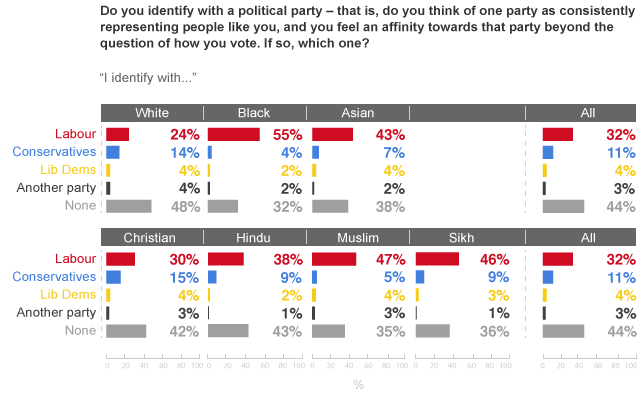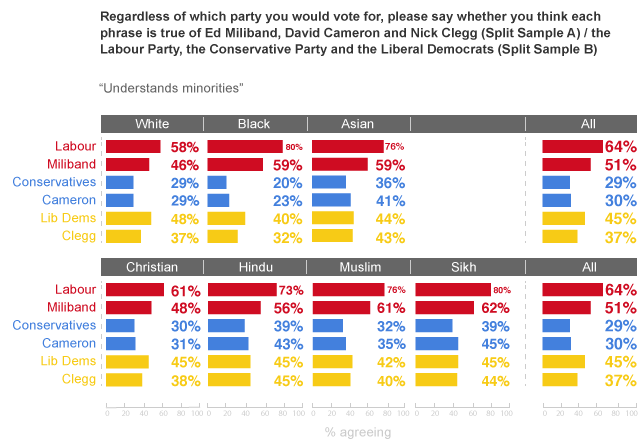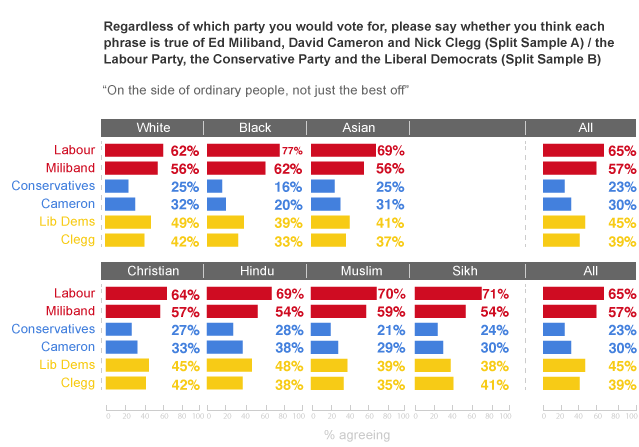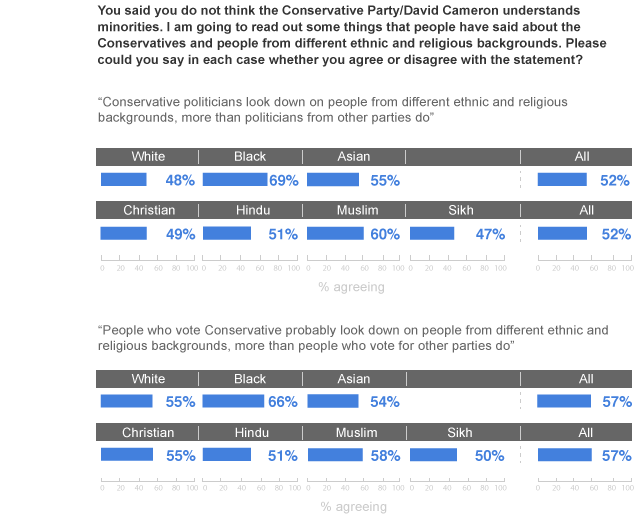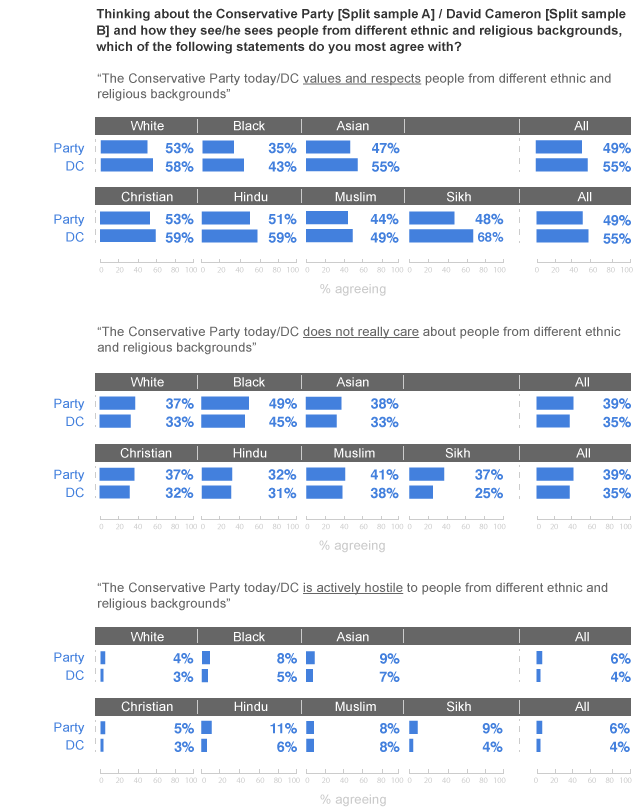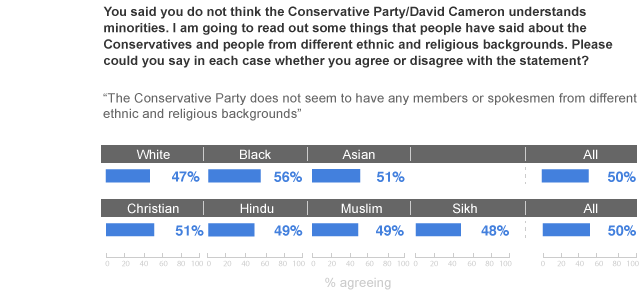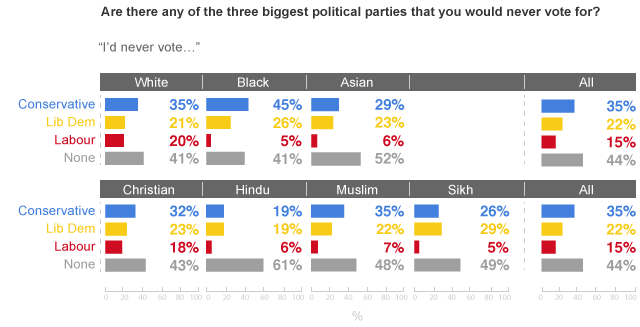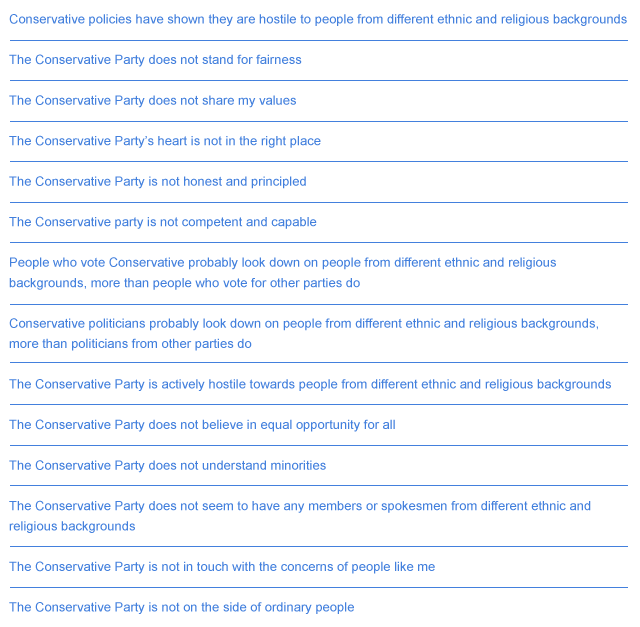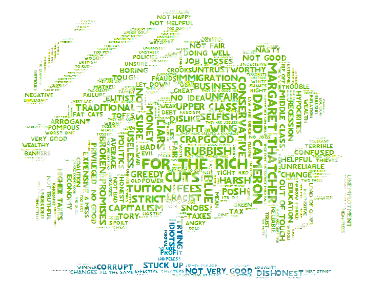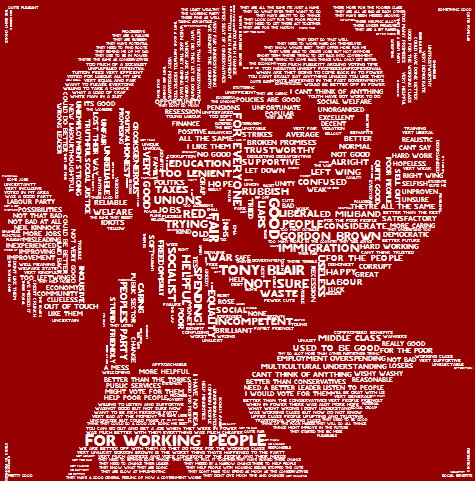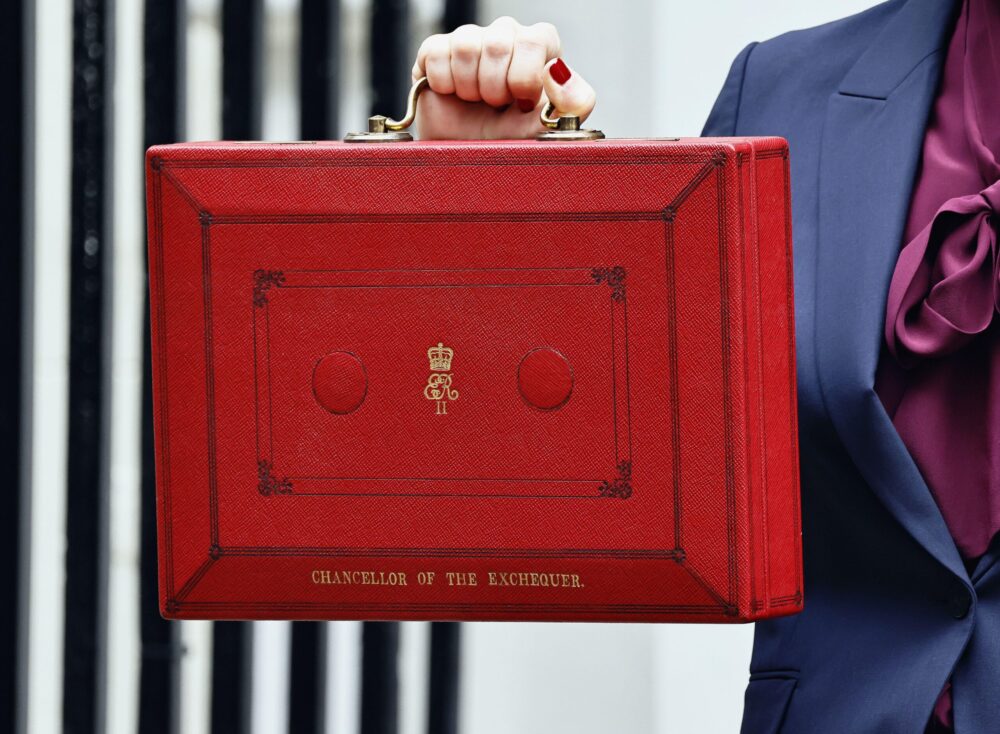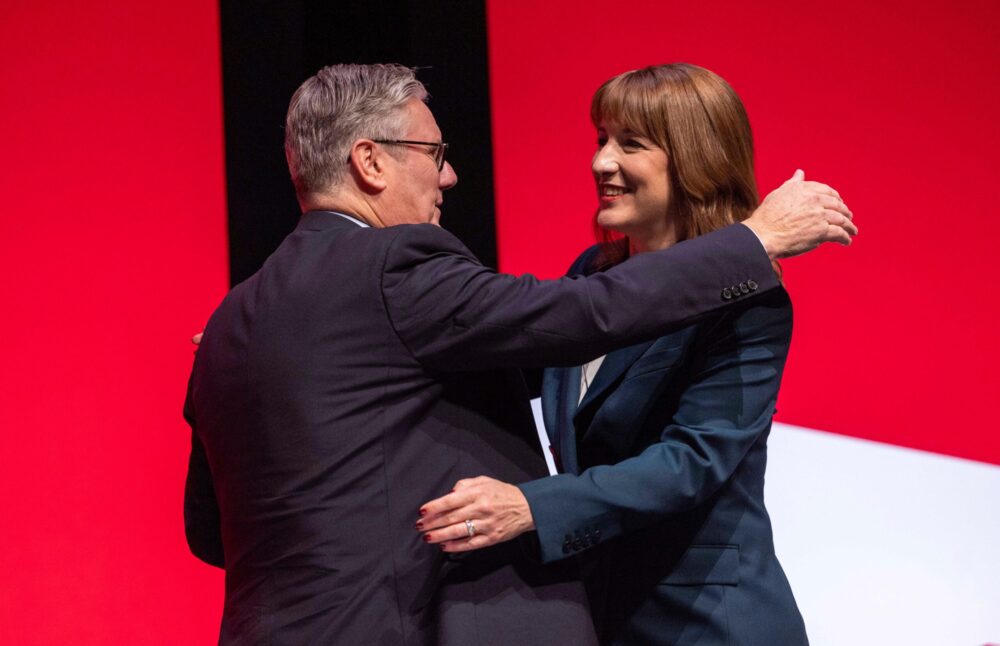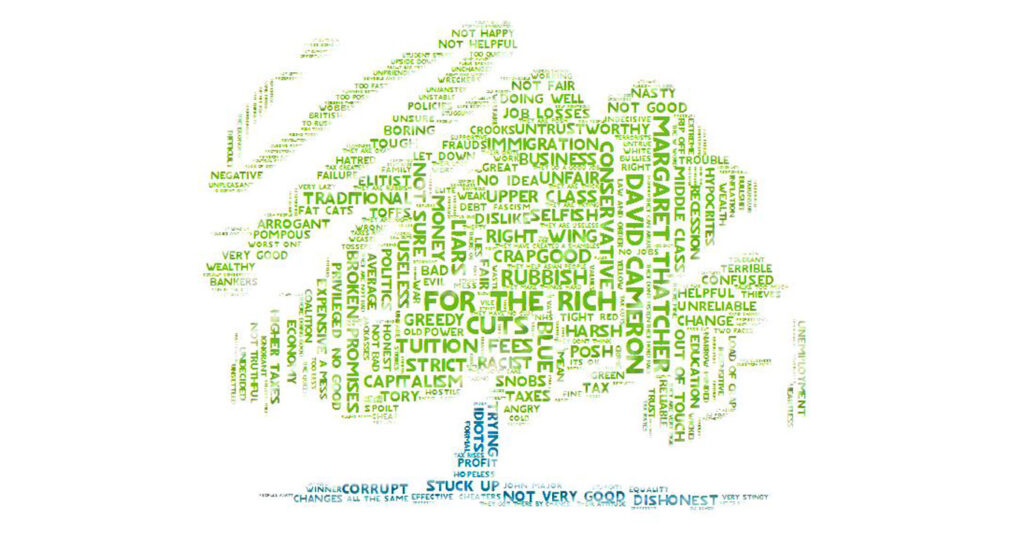
At the 2010 election, only 16% of ethnic minority voters supported the Conservatives. More than two thirds voted Labour. Not being white was the single best predictor that somebody would not vote Conservative.
The gulf between the Conservative Party and ethnic minority voters is a well-known feature of British politics. I decided to explore the problem in more detail. The results of the research – which involved a 10,000-sample poll and 20 discussion groups with voters from black African, black Caribbean, Muslim, Hindu and Sikh backgrounds – are detailed in my latest report, Degrees of Separation: Ethnic minority voters and the Conservative Party.

Some argue that the Conservatives’ efforts to reach minority votes have so far been fruitless, and should therefore cease. I disagree, for two reasons. First, in narrow political terms, to narrow the deficit among these voters is in the party’s electoral interests. The average non-white population of the constituencies the Tories gained from Labour in 2010 was 6 per cent. In the twenty of Labour’s one hundred most vulnerable marginals that the Tories failed to win, the average non-white population was 15 per cent. In the five of those that were in London, it was 28 per cent. The Conservative Party’s problem with ethnic minority voters is costing it seats.
Secondly, it is just not right that in contemporary Britain a large part of the population should feel that a mainstream party of government – which aspires to represent every part of society and govern in the whole country’s interest – has nothing to say to them.
Methodology
A poll of 10,268 adults was conducted between 24 October and 4 December 2011. All interviewees lived in the areas with the highest concentrations of black and minority ethnic residents according to census data. Of the total sample, 3,201 were from a black or Asian background.
20 focus groups were conducted between 31 January and 1 March 2012, in London, Bristol, Manchester, Leeds, Bradford and Birmingham. Separate groups were conducted of voters from black African, black Caribbean, Muslim, Hindu and Sikh backgrounds.
Summary of key points
Click here to download the full report
Click here to order a printed copy of the report
Click here to read my commentary on the research in the Sunday Telegraph
Participants in all groups spoke of an historic allegiance to Labour. This was primarily a matter of class and occupation rather than ethnicity. Most participants still considered themselves working class, including those with professional careers. Most still the Labour Party remained at heart the party for working class people, though several said they had only reluctantly voted Labour in 2010.
Many also felt that Labour supported them not only in class terms but as members of an ethnic minority. Labour was regarded as more engaged in their communities, more positive than others about the idea of immigration, and more committed to promoting equality and opportunity for ethnic minorities. Sikh participants in particular said that Labour’s ethos and conception of community was closer to their own than those of the Conservatives.
Participants overwhelmingly thought the Conservative Party was for the better off middle classes, not for people like them. However, for significant number there was also a racial element to their view of the Tories. Several mentioned incidents that seemed to confirm what they believed to be the party’s hostility or indifference to ethnic minorities, and a majority in the poll thought both that Conservative politicians looked down on people from different ethnic and religious backgrounds, and that people who voted Conservative probably did so too.
Black voters were particularly likely to think that Conservative policies had shown they were hostile to ethnic minorities. Things like changes to tax credits and the Education Maintenance Allowance may not have been motivated by prejudice, but seemed to demonstrate a disregard for their effects, which would disproportionately hit minority communities.
There was some debate among participants over how much, if at all, the Conservative Party had changed in recent years. In the poll, just over half of ethnic minority respondents said the party was changing for the better – though in the groups many thought this would have been out of necessity as much as principle. However, significant numbers felt that any changes had merely been cosmetic, and the party’s underlying attitudes had not shifted. The perception that the Tories had unfairly blamed minorities for last summer’s riots, David Cameron’s speech at the Munich Security Conference in which (they had heard) he criticised multiculturalism, the impact of cuts on ethnic minority communities, what they regarded as unfair changes to immigration laws which seemed to distinguish between white and non-white immigration, and the Conservative Party’s apparent lack of ethnic minority members or spokesmen were all mentioned as evidence to support this view.
Between them, the groups could name only a handful of ethnic minority politicians. While some were not troubled by this, black and Muslim participants in particular felt that someone from their background would find it hard to break through in public life, and would soon encounter opposition if they were to succeed. While more minority politicians would be a good thing in principle, many feared that they would be there only as tokens, and they would not be free to say what they thought or exercise real power.
Some also doubted that a politician ostensibly from the same background as them would really have shared their experiences. This doubt was all the more intense when it came to Conservative ethnic minority candidates. Black voters especially thought that a black Conservative MP would probably be quite rich and posh, and therefore no more able to understand or represent them than any other Tory.
Around a third of white voters, and between 19% and 45% of ethnic minority voters depending on background, said they would never vote Conservative.
Analysis of the other poll findings identified the opinions most closely associated with this statement; these views constitute the biggest barriers between the Conservative Party and ethnic minority voters. These statements vary significance between different groups, but the most important overall are as follows:
What is the first word or phrase that comes to mind when you think of the Conservative Party? [Ethnic minority voters]
What is the first word or phrase that comes to mind when you think of the Labour Party? [Ethnic minority voters]
What is the first word or phrase that comes to mind when you think of the Liberal Democrats? [Ethnic minority voters]
